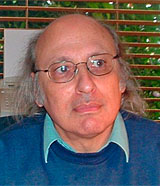Editions Narayana
- plus de 10.000 produits sur l'homéopathie et les soins naturels
- Séminaires avec des médecins homéopathes de renommée mondiale
- Alimentation saine et naturelle
- Homéopathie pour les plantes
Meilleurs commentaires des clients
de 108543 l' effet larsen
A.M. de France
continuez à enrichir vos offres
Christian de France
bien dans l'ensemble.
Karen de France
choix et prix au top! produits de qualitéEditions Narayana
 2.734.892 clients de 193 pays
2.734.892 clients de 193 pays
- plus de 10.000 produits sur l'homéopathie et les soins naturels
- Séminaires avec des médecins homéopathes de renommée mondiale
- Alimentation saine et naturelle
- Homéopathie pour les plantes

A.M. de France
continuez à enrichir vos offresCancer & Homeopathy de Jean-Lionel Bagot, Critique
 |
Cancer & Homeopathy How to alleviate the side effects of chemotherapy, radiation, surgery and hormone therapy |
|||
 de Joe Rozencwajg publié en "The Homeopath" November 2015 |
Cancer and HomeopathyDo not be fooled by the title. This book is not about treating cancer with homeopathy, but, as the subtitle says clearly, about “how to alleviate the side effects of chemotherapy, radiation, surgery and hormone therapy”. It is a practical guide on how to use homeopathic remedies when a patient has decided to go through the conventional treatment for cancer.In fact, the first chapters vehemently, almost hysterically, repeat many times that homeopathy cannot treat cancer, that this book is not about that, and that it is to be used exclusively to counteract the side-effects of the “real and effective” cancer treatments. Grimmer, Ramakrishnan and many other past and present practitioners would disagree, but that is beside the point. I could even fathom the background shadow of the French Ministry of Health ready to axe Dr. Bagot’s license to practice medicine if he dared suggest that a homeopathic remedy could treat cancer. Then the real beauty of this book appears. Dr. Bagot is an Oncologist and a Homeopath working and teaching in Strasbourg (France) where he has established a supportive care unit for cancer patients within the department of oncology. His clinical experience is based on more than 4000 cases, successfully treated. There is no arguing with that. There is simple, practical advice on how to recognise and prescribe or administer homeopathic remedies when the diagnosis is made, before and after surgery, during chemotherapy with most of the possible complications explored, during and after radiotherapy and hormone therapy, dealing with pain and in palliative treatment. The potencies, doses and repetitions reflect Dr. Bagot’s own way to practice. They are presented as a self-help manual for the patients, in a DIY approach. He does not say it is the only way and clearly states that each homeopath should modify the protocols according to their own ways. Once again, the sheer number of successful cases should silence any disagreement, my own included.' The book deserves to be distributed to every single health practitioner, of both conventional and natural medicine. Everybody will be confronted with patients suffering from cancer and many of those will chose to submit themselves to regular treatments. It is their choice and we respect that, which does not mean we should not help them throughout their painful journey. You do not need to be a homeopath or even to have anything more than a very basic understanding of homeopathy to use the recommendations provided. Will a “this for that” collection of recipes horrify classical homeopaths? Yes, indeed, but the patients will be grateful and appreciate the help; that is what is important to clinicians. It is also an important work for homeopaths: by using remedies and obtaining results while under the influence of heavy drugs and radiotherapy, it clearly shows that contrary to established belief, remedies do work despite the toxic external assaults. Conventional homeopathic teaching says that as long as the patient is on drugs, remedies should be withheld. Here is the definite proof that it is not true. That was not the intention of this work but the results are clear and obvious. Another important and unintentional effect of this book is the clear demonstration of homeopathy’s effectiveness, witnessed from within the system and by oncologists, radiotherapists and surgeons. We can then in all confidence throw this book (preferably with violence) at the skeptics’ heads and watch them squirm in despair; it cannot be attacked! Dr. Bagot deserves the gratitude of all cancer patients and of the homeopathic community for his work. His book deserves to be propagated as much as possible. | |||
 |
Cancer & Homeopathy How to alleviate the side effects of chemotherapy, radiation, surgery and hormone therapy |
|  | |
| Critique de ce livre | |
|
Cancer and Homeopathy de Ian Hamilton , publié en "The Homeopath" Winter 2014 | |
|
Cancer and Homeopathy de Joe Rozencwajg , publié en "The Homeopath" November 2015 |





